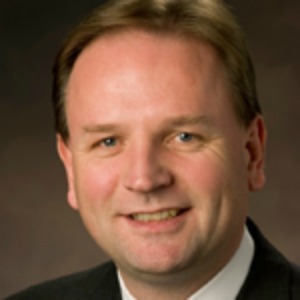NHS chief brands GP recruitment strategy ‘crazy’

The chief executive of NHS England has said that the GP recruitment strategy over the past ten years has been ‘crazy’, with four times as many graduates entering specialist training than general practice.
Responding to questioning by the Public Accounts Committee (PAC) today (Monday), Mr Stevens said ‘there clearly are substantial pressures’ on the GP workforce which mean that NHS England has to ‘make coming into GP training more attractive, including attractive relative to hospital medicine’.
Mr Stevens blamed recruitment trends over the past 10 years for the situation NHS England now finds itself after being put under pressure by PAC chair Margaret Hodge MP on whether the NHS is recruiting enough GPs within the right timescale to ensure there are sufficient GPs.
The PAC was questioning NHS England’s management team in light of a National Audit Office (NAO) report published in July that showed that 60% of out-of-hours providers are unable to fill gaps in GP rotas.
Mr Stevens said: ‘GP numbers are increasing but there clearly are substantial pressures and one of the things that we have got to do is make coming into GP training more attractive, including attractive relative to hospital medicine because one of the great unplanned consequences of the last 10 years is that whereas GP numbers are up by between a fifth and a quarter, the number of hospital consultants is up by 76% in whole-time equivalent terms.’
‘If someone had said 10 years ago that the NHS’s game plan for the next 10 years is to have between three and four times more hospital consultants added to the roster than GPs, people would have said “that’s crazy”, but that is what has happened.’
Related stories
Taskforce proposes radical solutions to GP training crisis
Health education chiefs call summit to tackle developing GP workforce crisis
Asked by the committee why he thought that was, Mr Stevens said: ‘My personal point of view is that one of the things that has driven that is the way that the European Working Time Directive has been implemented. I think it has had the effect of sucking in doctors into hospitals to create legal rotas and to some extent training has been the tail that has wagged the dog.’
Mr Stevens also admitted that NHS England has no game plan for how what sort of increase in GP numbers that the health service will need by the end of this decade, but blamed the Government’s lack of direction on how much NHS funding will be available to staff the NHS in general.
He said: ‘We don’t have a single model for GP numbers and the simple reason is that we have no idea what resource is going to be available to the NHS come 2020. As and when Parliament sets us a budget through the end of the decade we will then be able to work out what our staffing can be based on the resources.’
It comes as health education managers in the south west of England have been forced to to arrange a ‘crisis summit’ to tackle acute problems in the GP workforce and as Health Education England (HEE) announced in July that it was running an unprecedented third recruitment round for GP trainees after Pulse revealed that as many as 40% of training places were going unfilled in some parts of the country.
Pulse October survey
Take our July 2025 survey to potentially win £1.000 worth of tokens













